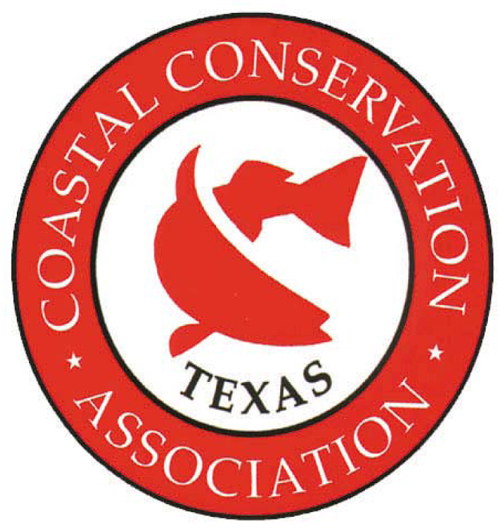Coastal Conservation Association Stays Busy in Fight for Marine Conservation and Recreational Anglers

Coastal Conservation Association (CCA) and Coastal Conservation Association Texas (CCA Texas) have remained busy through the summer in the continuing fight to maintain our coastal resources. Several issues remain at the forefront on the national level that have direct and immediate impacts on Texas's offshore recreational fishermen while habitat restoration continues to be a top priority not only in Texas but also in CCA's sister states. CCA's Building Conservation initiative and CCA Texas's Habitat Today for Fish Tomorrow program have made tremendous strides in restoring and creating vital marine habitat both inshore and in nearshore waters. In addition, CCA Texas continues to support many programs within the state that have remained important to the organization throughout its existence.
CCA Texas Executive Board approves funding for TPWD boat lift
CCA Texas Executive Board approved $15,900 in funding for a boat lift located in Rockport, Texas that will cradle Texas Parks & Wildlife Departments (TPWD) new 38 enforcement boat. This project will potentially save thousands of dollars in annual maintenance.
"CCA Texas supports the work of TPWD game wardens and this new enforcement vessel will provide the states wardens an effective tool for patrolling the nearshore and offshore waters along the Middle Texas Coast," commented CCA Texas Parks Wildlife Committee Chairman Ronnie Luster. It's important that necessary steps be taken to ensure the longevity of the wardens equipment and keeping this boat out of the water when docked will save thousands in annual maintenance.
This new vessel, the P/V Holt, will increase the fleet that already a 29 Safe Boat in Rockport and a 29 Safe Boat in Port O'Connor. The existing vessels proved their effectiveness recently during confiscation of 40,000 lbs of illegal shrimp. CCA Texas looks forward to seeing P/V Holt on the water soon.
CCA testifies before the Gulf Council regarding Sector Separation
Sector separation is the proposal to formally split existing and future recreational sector allocations of harvest into separate private boat and charter/for-hire/headboat sector portions. The idea of sector separation and catch shares for the recreational sector has been embraced by only a vocal minority of vessel owners and has been opposed by four Gulf state governors, Congress and the vast majority of the recreational angling community. Nevertheless, the Gulf Council continues to toy with the idea. In June 2011, the Council appointed an advisory panel to make recommendations on a new catch share program for headboats, and the idea continues to gain momentum.
In August, CCA presented the following testimony to the Gulf of Mexico Fishery Management Council on the issue of sector separation:
The primary objection that CCA has with sector separation is the lack of apparent benefit to be had for recreational anglers, the states, or for state budgets. There continue to be vague references to better data but there is no new way to track catches on for-hire vessels. If the sectors were separated today, the same data gathering systems (the Marine Recreational Fishery Statistical Survey or the new Marine Recreation Information Program) would continue to provide catch estimates for private and for-hire sport vessels. Any new data collection efforts could be implemented without separating the sector.
Economically, NOAA's bio-economic studies show that recreational anglers will contribute $9.1 billion during 2009-2032 in Gulf of Mexico shrimp and reef fish fisheries while the for-hire fishery will contribute $0.83 billion. We hope the Council will factor these in when considering sector separation.
Other economic figures should also be examined. NOAA Fisheries Service Office of Science and Technology looked at Economic Impacts and Expenditures from Saltwater Sportfishing by Gulf State in 2009. That information indicates that in Texas, angler expenditures came to almost $103 million while for-hire expenditures totaled about $27 million. Gulf-wide, angler expenditures came to over $1 billion. For-hire expenditures came to about $208 million.
For state governments and their marine resource management agencies, private boat anglers supply the vast majority of license fees that support state fisheries programs. Charter/for-hire supplies a much smaller percentage. Politically, we suspect separation will create deep conflicts for state governments as they grapple with how to spread fishing opportunities between private boat and charter/for-hire/headboat sectors.
Looming over all these points is the trend over the past decade towards increased red snapper catch by the private vessel sector relative to for-hire catches. We do not know why this trend has occurred but do not believe the Council should impose government action to reverse what has occurred naturally. We also do not think the Council should impose government action to support the increasing private vessel catch trend. We believe these dynamic changes should occur without artificial influence by managers, and without the outdated encumbrance of sector allocations that are set in stone.
Before this Council lets the concept of sector separation come into existence against almost universal opposition, CCA encourages it to first reallocate fisheries according to modern factors like economic, social, and conservation criteria, rather than outdated catch history. There is a very good chance that reallocating red snapper would solve many of the problems faced by the CFH sector without creating so many new problems.
CCA also advocates creating a means to transfer red snapper IFQ shares between sectors. This approach would allow those for-hire Captains who also hold commercial shares to utilize those shares to enhance their charter business.
This Council faces many real management challenges, and CCA appreciates the demands of those challenges on its time and resources. We hope the Council will elect to focus its energies on core issues and set aside the distraction of sector separation.
